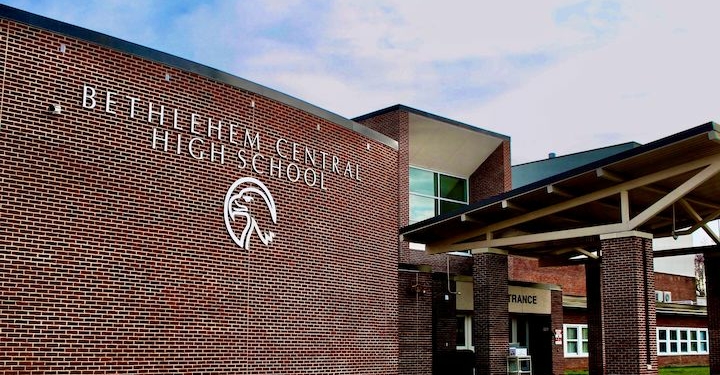DELMAR — Bethlehem Central’s Chief Business Officer presented a proposed budget to school board members that assumes no increase to taxpayers for the 2022-2023 academic year.
The Feb. 16 meeting started the process of the proposed budget presentations. Over the next two months, the board will be hearing about some of the most important aspects of the budget. Adjustments will be made throughout these discussions and presentations. The final proposal won’t be presented until April and be put to public vote in May.
“I think we’re in a very good place, as we kick off this year,” Chief Business and Financial Officer Judi Kehoe said.
The proposed budget assumes $102.7 million in expenditures, with a $385,000 surplus after district costs. The surplus will go towards proposed changes from departments. The amount of state aid included in the budget, an estimated $15,430,500, has allowed for the stability in the district’s budget.
The amount of school taxes for Bethlehem residents is assumed to stay the same, Kehoes said. Bringing in a total of $69,233,000 in revenue for the district. The budget does include an estimated tax increase of .015 percent in relation to the tax threshold if the district does need to increase taxes.
The district is also looking towards the future in terms of loss of revenue. In the 2024 to 2025 budget year, the PSEG payment in lieu of taxes (PILOT) program will end, leaving the district with $3.4 million in lost revenue. The district is waiting for other projects to start and be approved in the community, which overtime will start to generate additional PILOT revenue.
“Based on current estimates, it would take us up to about a nine percent tax increase which we would not be recommending for the community,” Kehoe said.
PILOTs are taken into account of the tax cap formula. From the perceived lost revenue, the district has the ability to increase taxes significantly in 2024 and 2025. The district has tools to monetarily counteract the loss so taxes do not increase at such a high rate. They are also looking at new ways to prepare for its arrival without greatly impacting the community.
“Part of the state budget talked about allowing the state to create a rainy day fund,” she said. “That would be wonderful if school districts could have something like that.”
One of the increases to the budget are administrative costs in relation to tax collection. In 2021 to 2022, tax collection cost was $34,755. In the proposed budget, the cost increased to $41,185. This increase follows a rough year of tax collection where taxpayers didn’t receive confirmation of their payments.
“We are recommending a change going forward,” Kehoe said. “We would like taxpayers to have their payments clear within 48 hours of making their payments.”
The district uses a third party service that ran into staffing issues last year that led to delays in processing payments. The district recommends bringing on temporary staff for a two month period to clear payments in the proposed time frame. The district will still use the software from the third party service, but with the district’s own staff.
The Feb. 16 meeting also focused on the transportation and technology aspects of the budget. The transportation presentation included updates among the fleet like GPS installment and training, and possible recommendations to the fleet to better accommodate students. In the proposed budget, the transportation budget is proposed to decrease $140,296 to total $6,263,705 for 2022 to 2023.
The technology budget is looking to update cafeteria hardware throughout the district. There is still a need to update and install projectors systems in large instructional spaces in Eagle and Slingerlands. The budget for technology is proposed to increase to $527,358 to total $3,320,812.
The next board meeting on Wednesday, March 2 will focus on the athletics, and operations and maintenance aspects of the proposed budget.



